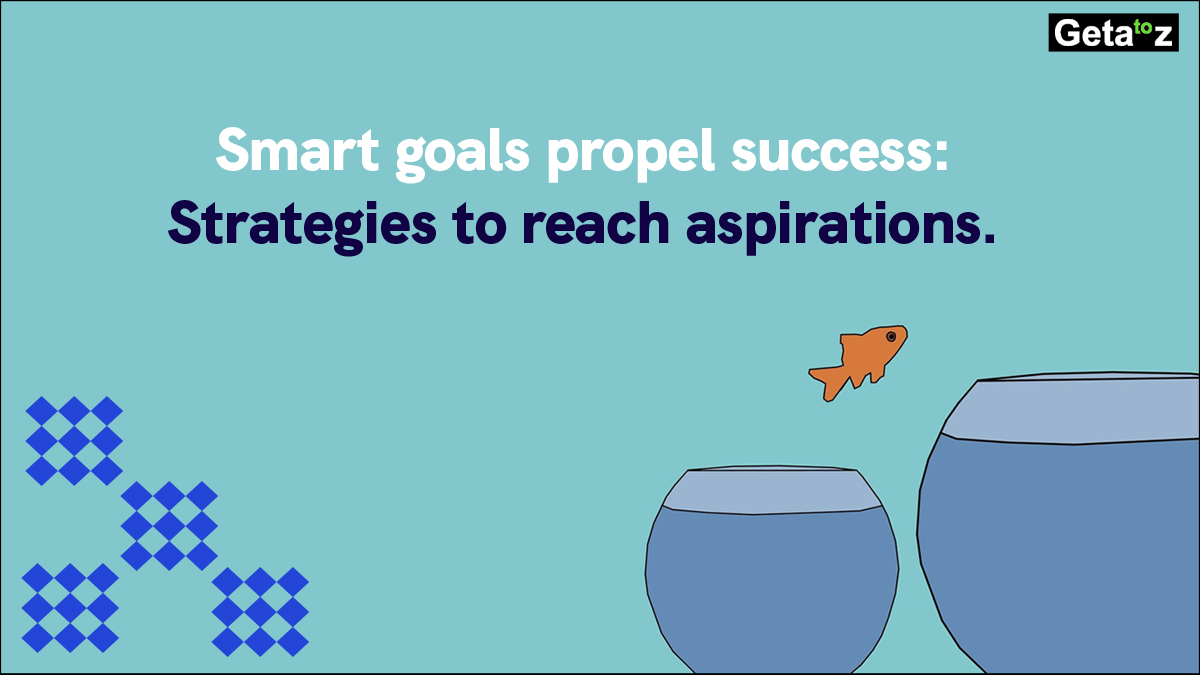Achieve Success with SMART Goals: Your Guide to Setting Clear and Attainable Objectives
Updated: June 17, 2024

S.M.A.R.T is an acronym for Specific, Measurable, Achievable, Relevant, and Time-Bound. It helps you set clear and reachable goals. Using SMART goals, you can plan your steps and see your progress easily and in an organized way.
- Specific: Identify exactly what you want to achieve. Focus on one area for improvement.
- Measurable: Set a way to measure your progress. This shows you when you have reached your goal.
- Achievable: Make sure your goal is possible to reach. Avoid goals that are too hard.
- Relevant: Connect your goal to the bigger picture. It should fit into your overall school, work, or personal plans.
- Time-bound: Set a deadline for your goal. Decide when you want to achieve it.
Defining these parameters as they relate to your goal helps ensure your objectives are attainable within a specific time frame. Generalities and guesswork are eliminated by this approach, making it easier to track progress and identify missed milestones.
How to Write SMART Goals?
Writing SMART goals involves breaking down each of the five elements.
Specific
To be effective, a goal needs to be specific. Answer questions like "What needs to be done?", "Who will do it?" and "What steps should we take to achieve it?" These questions help clarify what you are aiming for.
Measurable
Make sure your goals are measurable. This helps you track progress and know when you have achieved them.
Achievable
Check if the goal is something your team can reasonably do. Think about any limits you have, and talk about them. If the goal comes from someone else, share any problems you might face upfront.
Relevant
Think about why you are setting this goal. Make sure it is essential and fits into your bigger plans.
Time-bound
Everyone needs to know when the goal should be finished. Decide when to start and when to finish. Set deadlines so everyone knows how to stay on track.
Examples of SMART Goals
Here are some examples of SMART goals to show how you can create effective personal, business, work, and leadership goals:
SMART Goal for Getting Fit
Suppose you want to run a marathon without stopping, six months from now.
- Specific: You will start running daily and train for a marathon.
- Measurable: You will follow a structured training program to run a full marathon without stopping.
- Achievable: You have done some running before, your body is reasonably healthy, and the marathon is six months from now.
- Relevant: You want to become fit, healthy, and strong.
- Time-bound: You have signed up for a marathon six months from now.
SMART Goal for Completing a Personal Project
Suppose you want to write a 60,000-word novel in six months, finishing on June 30, by writing 2,500 words per week.
- Specific: You will write a 60,000-word novel.
- Measurable: You will finish writing 60,000 words in six months.
- Achievable: You will write 2,500 words per week.
- Relevant: You have always dreamed of becoming a professional writer.
- Time-bound: You will start writing tomorrow, January 1, and finish on June 30.
SMART Goal for Improving Relationships
Suppose you want to call your mom and your sisters twice weekly for three months to develop your relationships with them.
- Specific: You will develop your relationships with your mom and sisters.
- Measurable: You will call each of them twice per week.
- Achievable: You talk to them regularly, so it is always nice to talk more.
- Relevant: You want to strengthen your social ties, feel more loved and supported, and support those you love.
- Time-bound: You will stick to this plan for three months, then re-evaluate and plan your next steps.
SMART Goal for Starting a Business
Suppose you start a dropshipping business online on Saturday and spend one hour on this business each day to land your first sale within two weeks.
- Specific: You will start a dropshipping business.
- Measurable: You will work on your business for one hour daily to land your first sale within two weeks.
- Achievable: You have watched some videos on dropshipping and now feel confident enough to start a business quickly.
- Relevant: You want to quit your job, work from home, and be your boss.
- Time-bound: You will begin on Saturday and land your first sale within two weeks.
SMART Goal for Marketing a Business
Suppose you start a Facebook Ads course tomorrow and invest 30% of your business profits into paid campaigns within one week. You will continue to learn and invest in Facebook Ads to double your sales within three months.
- Specific: You will learn how to use Facebook Ads and invest 30% of your profits into this marketing channel.
- Measurable: The goal is to double your sales within three months.
- Achievable: You have a reasonably successful small business that is ready to handle a growth in sales.
- Relevant: You want to make six figures per year working from home.
- Time-bound: You will start a Facebook Ads course tomorrow and run paid campaigns within one week. Then, you will continue to learn and scale up, evaluating your results in three months.
Following the SMART framework can turn your dreams into concrete objectives and actionable plans. Whether aiming to improve your fitness, complete a personal project, enhance your relationships, start a business, or boost your marketing efforts, SMART goals provide the clarity and structure needed to succeed. Remember, the key is to be specific, measure your progress, set realistic and relevant objectives, and keep everything time-bound. Start today, and watch your goals transform into accomplishments!